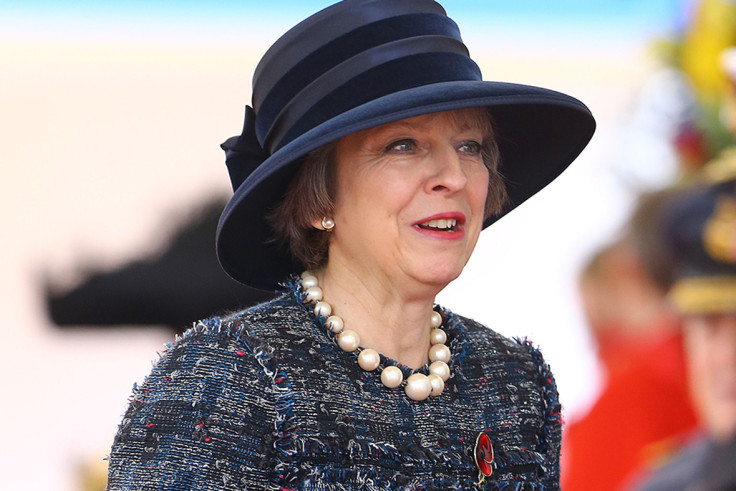Theresa May could face visa liberalisation demand from India during her visit on Sunday
This will be May's first bilateral visit outside the European Union as head of state.

Theresa May is to visit India to discuss post-Brexit trade relationships between the two nations. The British Prime Minister will begin her three-day visit on Sunday, 6 November.
This will be her first bilateral visit outside the European Union (EU) as head of state. She will arrive in the Asian country's capital, New Delhi, accompanied with a business delegation from across the UK.
While she is expected to push for some major trade deals with India that can be put into place as soon as the UK officially leaves EU, it is said that she could face visa liberalisation demands from India, as a price for a post-Brexit trade deal, according to sources.
Patricia Hewitt, chair of the UK India Business Council, said that the negotiations would see both the nations seek a "modern agreement" that involves both goods and services. "And when you talk about services, some of that involves the temporary movement of people," she explained.
Chandrajit Banerjee, the director general of the Confederation of Indian Industry (CII), said: "It is very important for business that people have more access to work in Britain, and this will be a key demand in any trade talks." An unnamed Indian government official as cited by the Financial Times added, "We want everything to be on the table, and that will have to include visas."
Indian immigration into the UK or more broadly into the EU is not a new issue. It has been going on for about a decade. While India is said to have asked the bloc to allot 50,000 working visas a year, the bloc is said to have disagreed over this number. This is said to have been a hurdle in separate trade talks between India and the EU.
Meanwhile, the UK is said to have its own expectations from India. It is said to seek the liberalisation of service sectors including insurance, accountancy and legal services.
"India-UK trade has suffered in part because services are such a big part of what the UK exports, but strict Indian laws regarding what services can come from abroad have held them back," Hewitt said.
An unnamed former Tory minister also commented in this regards. The minister said: "You see the Germans and Italians easily exporting their engineering to India but it's harder for us given their restrictions on important services industries such as insurance."
Total bilateral trade between both the countries stood at $14bn (£11.18bn) in 2015-2016. This is a decline from the $15.7bn trade numbers seen in 2011-2012.
According to Narayan Iyer, India head at global law firm Linklaters, India was the third-largest source of foreign direct investment into the UK in 2015. May, he said, was expected to ensure this continues. "The British PM will want to show how the U.K. will capitalize on the economic and diplomatic opportunities outside of Europe. She will be keen to send a strong message that the U.K. remains an advocate for free trade and is open for business," he was quoted as saying by CNBC.
© Copyright IBTimes 2025. All rights reserved.





















